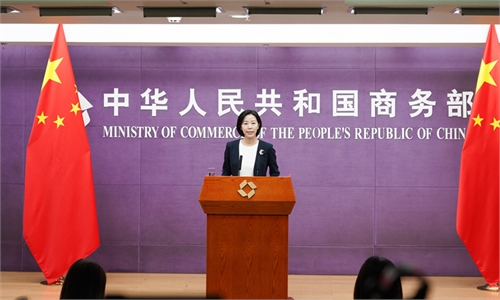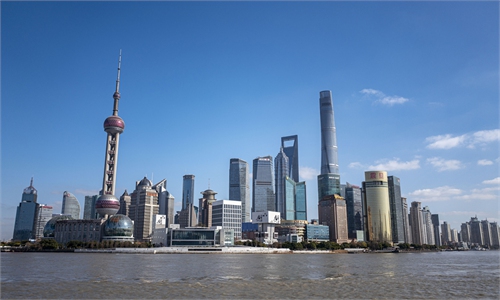American companies eye for business expansion in China, attracted by Chinese consumers’ massive buying power
Chinese households’ massive savings to spur consumption, economic growth

Residents select decorations for the upcoming Spring Festival at a fair along Shanghai Road of Nanning City, south China's Guangxi Zhuang Autonomous Region, Jan. 14, 2023. (Xinhua/Zhou Hua)
Major US companies from food giants to fashion brands are increasing their bets on China's huge market in anticipation of Chinese consumers' willingness to spend their excess savings and a quick rebound for the world's second-biggest economy after China optimized COVID-19 management.Despite the US government's push for an economic decoupling from China, the actions of the US businesses showed that they still see China as a market with massive opportunities, while many other economies face a slowdown, experts said.
Some US companies have announced their plans to expand operations in China, the Global Times learned.
For example, Tyson Foods is planning to open two new plants in Nantong, East China's Jiangsu Province and Xiaogan, Central China's Hubei Province in the first half of this year, Tyson Foods China & Korea said in a statement shared with the Global Times on Tuesday.
US retailer Tapestry, the owner of the Coach and Kate Spade brands, is teaming up with local brand White Rabbit to expand in the Chinese market.
"The Chinese market is the inexhaustible source of inspiration for the company to seek breakthroughs and innovation. We hope that through more such innovative cooperation, we can bring consumers new inspiration for a better life and bring new strength to the innovation and development of China's fashion industry," Yann Bozec, president of Tapestry Asia Pacific and CEO and president of Coach China, said in a statement sent to the Global Times.
And, Starbucks aims to increase the number of its stores in China to 9,000 and double its net income in China by 2025, according to a statement shared with the Global Times.

People shop at a shopping mall in Changchun, northeast China's Jilin Province, Jan. 23, 2023. (Xinhua/Xu Chang)
The expansions come as China optimizes its pandemic management, along with growing Chinese household deposits over the past three years and plans to boost consumption as a main driver of the economy this year.US enterprises, particularly those in the consumption field, are setting their sights on China's huge market opportunities in 2023 and beyond, Hu Qimu, chief research fellow at the Sinosteel Economic Research Institute, told the Global Times on Tuesday.
According to the People's Bank of China, the central bank, deposits held by households nationwide grew in 2022 by a record 17.8 trillion yuan ($2.6 trillion), a steep rise compared with growth of 9.9 trillion yuan in 2021.
CEO of Hong Kong Exchange and Clearing Nicolas Aguzin said he sees about $2.5 trillion in excess savings that could be used by Chinese households in post-pandemic period.
According to UBS estimates, Chinese families accumulated 4 trillion yuan of excess savings between 2020 and 2022.
With the optimized pandemic management introduced at the end of last year, pent-up consumption could be quickly unleashed to spur economic development, Hu said.
From the perspective of US markets, persistent inflation there weighs on consumer spending, pushing American companies to adjust their global market layouts and seek alternative markets with steady income, he added.
China's economy is likely to grow by 5.2 percent this year and a key reason for the rebound this year will be an increase in consumer spending, Steven Alan Barnett, senior IMF resident representative in China, said in a recent interview with the Global Times.
"We estimate 1 percentage point more growth in China fuels 0.3 percentage points of growth elsewhere. This was the average impact ... countries that have closer trade links to China would benefit more," Barnett said.
The appetite of US companies to invest in China comes as the US government has stepped up scrutiny over US investment and business operations in China.
A US Congressional panel plans to look at the role of private equity, venture capital and Wall Street firms in China as it prepares to launch hearings on Tuesday, the Financial Times reported.
"The noise from US politicians is unlikely to turn into actual bills or laws and it is more for show. In the consumer sector, the so-called economic decoupling will affect the core interests of the companies," Hu said.



